
Welcome back! It’s time for the Water Bearer editor to share some knowledge. Today, we will discuss the concept of “heat”.
“Heat” has long been a scapegoat (alongside “calcium deficiency”), often used to explain any minor symptoms in babies. Elderly people especially love to mention this, and they often resort to various folk remedies to “cool down” the baby.
Let’s take a poll to see how many of these you’ve encountered:

First of all, modern medicine does not recognize the concept of “heat”.
Secondly, the symptoms commonly referred to as “heat” actually have corresponding causes and proper treatment methods; simply “drinking more water to cool down” will not resolve the issue.
Finally, I want to emphasize that today we won’t get caught up in where this “heat” is located, but we should clarify how to identify the accurate cause when a baby shows symptoms and take the correct approach to address it. We must not let “heat” obscure the key issues and delay the baby’s condition. This is the main point.
Now, let’s discuss each point one by one.
Is not having a bowel movement for several days “heat”?
If a baby has hard stools and difficulty passing them, meaning they have fewer bowel movements and each time is very painful, with stools resembling hard little balls—this is not “heat”; it is constipation.
Note that simply having fewer bowel movements does not necessarily mean constipation. Some babies may “hold it in” and go several days or even over ten days without a bowel movement, but if the stools are soft, this does not qualify as constipation. (For more on the difference between “holding it in” and “constipation”, you can refer to the previous article by the Water Bearer editor titled “Haven’t Pooped for Days! Holding It In? Constipation? One Trick to Distinguish”, which provides a more detailed explanation.)
What causes constipation in babies?
The most common reason is insufficient fiber intake.
Fiber in the baby’s intestines breaks down to produce water and short-chain fatty acids, which help soften stools. If fiber intake is insufficient, the stools will be drier and harder to pass.

What are you feeding me?
Babies who have not yet started solid foods rarely experience constipation because the oligosaccharides rich in breast milk are a type of soluble fiber. For those on mixed feeding or formula feeding, most formulas now also contain added fiber.
For babies who have started solid foods, it is important to include vegetables and fruits rich in fiber in their diet, and to cook them in a way that preserves the fiber to prevent and improve constipation.
Simply drinking more water does not increase fiber intake and cannot soften stools (it may only lead to more urination), so relying solely on drinking water will not fundamentally improve constipation.
Does drinking formula cause “heat”?
If a baby drinks formula and has yellow urine and constipation—this is not “heat”; it is likely due to incorrect preparation.
Common reasons may include: too much powder, too little water, or allergies.
Is there too much formula powder?
When measuring formula powder, use the small scoop that comes with the container and level it off against the side of the container for the correct amount.
Some parents may feel the powder is too loose and may shake the scoop or even press it down, causing it to overflow, and then they scoop more, press it down again, and repeat this process, which results in too much powder.
For example, if a baby can eat one piece of a cookie, giving them a compressed cookie would definitely be too much.
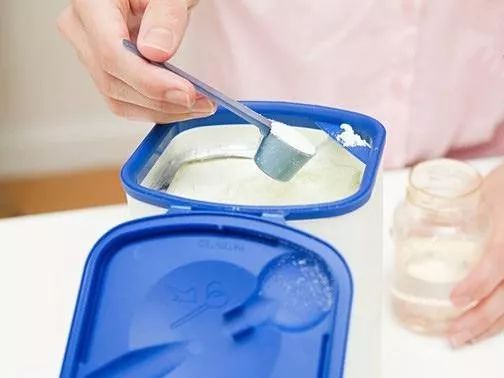
One scoop leveled off is just right
Is there too little water?
When preparing formula, should you add powder first or water first? Yes, you guessed it, water first.
Is this important? Absolutely.
For example, if the baby needs 100 milliliters of formula, you should first add 100 milliliters of water, then add the correct amount of powder according to the instructions. After shaking, the actual formula will be slightly more than the marked “100ml”. This is correct.
If you add powder first and then add water to the “100ml” mark, the actual water amount will be less than 100 milliliters, resulting in a thicker mixture.
So, it’s not the formula that causes the baby to have “heat”, and there is no requirement to “drink more water when using formula”. Formula is meant to be mixed with water, and the correct ratio of powder to water should be observed.
Is it an allergy?
Many parents say their baby is constipated after drinking formula, attributing it to “heat”, but it is likely an allergy.
Indeed, in addition to eczema and diarrhea, constipation can also be a manifestation of an allergy.
Currently, common infant formulas, whether made from cow’s milk or goat’s milk, are considered “regular formulas” as long as the protein has not been processed. Babies may be allergic to the proteins in these formulas, leading to various allergic symptoms.
If a baby shows signs of an allergic reaction, a hydrolyzed protein or hypoallergenic formula can be chosen under a doctor’s guidance (specifics should be consulted with a doctor).
Is a foul mouth odor and tongue coating “heat”?
If a baby has a persistent sour odor in their mouth—this is not “heat”; a common cause is gastroesophageal reflux.
Gastroesophageal reflux simply means that the milk or food the baby consumes goes into the stomach, mixes with stomach acid, and then returns to the mouth through the esophagus.
Some babies may spit up or vomit, while others may swallow it back down.
In any case, this leaves a sour taste…
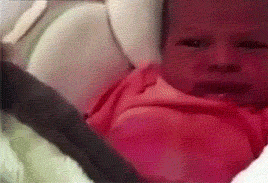
This is because babies have small stomach capacities and a relatively relaxed lower esophageal sphincter, which is common in younger infants and usually improves with development.
Is excessive eye discharge “heat”?
If a baby has a lot of eye discharge, sometimes even gluing their eyes shut—this is not “heat”; common causes are conjunctivitis or blocked nasolacrimal duct.
Conjunctivitis
If the eye discharge is yellow and purulent, conjunctivitis should be considered.
It is advisable to see a doctor; if diagnosed with conjunctivitis, treatment should be followed as prescribed (which may involve antibiotic eye drops).
If a baby frequently experiences conjunctivitis, hygiene issues should be examined. Regularly help the baby wash their hands, avoid letting them rub their eyes; clean household items frequently; and adults who frequently interact with the baby should wash their hands often.
Blocked Nasolacrimal Duct
If eye discharge occurs only in one eye, it is often due to a blocked nasolacrimal duct.
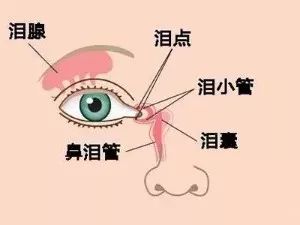
Let’s take a look at the location of the “nasolacrimal duct”
The nasolacrimal duct is the drainage pathway for tears. Tears are produced in the eye and absorbed through the nasolacrimal duct into the nose.
In younger babies, due to ongoing development, it is common to have one or both nasolacrimal ducts blocked. Tears cannot pass normally, getting trapped in the eye, evaporating, and leaving behind “eye discharge”.
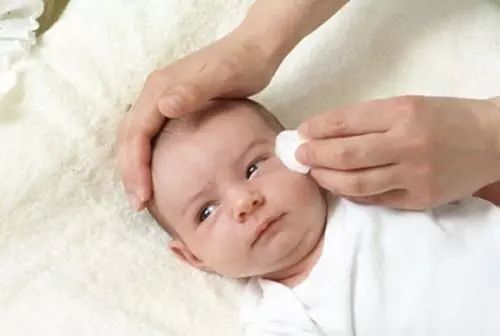
Parents can use a cotton ball dipped in saline solution to gently wipe from the inside out to help clear the eye discharge.

Unknowingly, there are so many points; how many burdens has “heat” carried?
In conclusion, regarding whether it is “heat”, this article concludes:
-
Constipation, bad breath, excessive eye discharge, etc., cannot all be attributed to “heat”. Babies are still in a developmental stage and may exhibit various symptoms; we need to find the underlying causes.
-
If it is a developmental phase issue, there is no need to rush; “wait for the flowers to bloom”.
-
If it is something that needs correction, such as allergies or conjunctivitis, consult a doctor for active treatment.
-
Do not use “drinking more water” as a cure-all; excessive water intake may also burden the baby’s organs. Randomly using folk remedies can pose even greater risks!
Finally, I want to reiterate that when a baby shows any symptoms, it is crucial to identify the accurate underlying cause and take the correct approach to address it, rather than letting “heat” or “cooling down” obscure the real issues. This is the key point.

Editor’s Note
Dear elders, let’s not argue about whether this “heat” exists; let’s just say we all want what’s best for the children—if that’s the case, let’s also listen to what the younger generation has to say.
Check out more articles from the Water Bearer editor:
-
Are Baby’s Legs Not Straight Because of Diapers? Don’t Be Ridiculous!
-
Can Reheated Water from a Thermos Be Given to Babies?

Copyright Statement: Original content, please do not reproduce without authorization.
Cooperation Email: [email protected]

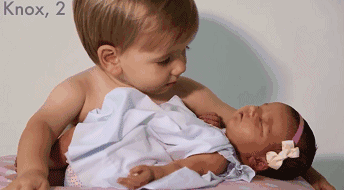
There are many ways to express love,
The editor likes the “like” button,
If you find this knowledge useful, please give the editor a thumbs up!

